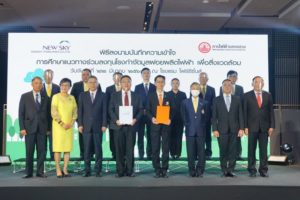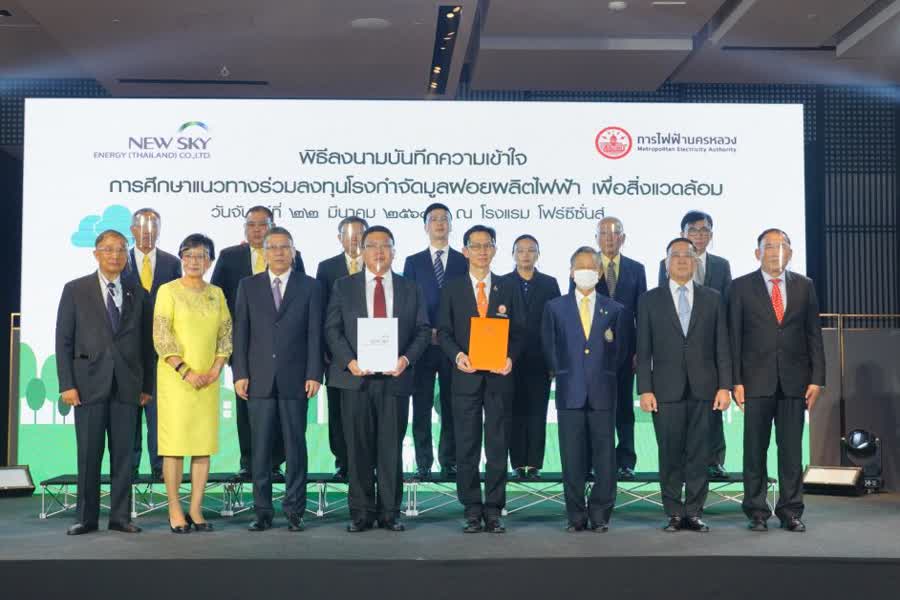 MEA and Newsky Energy Thailand to construct two waste-to-energy plants in Bangkok
MEA and Newsky Energy Thailand to construct two waste-to-energy plants in Bangkok
The Metropolitan Energy Authority (MEA) is looking into co-investment opportunities with private firm Newsky Energy Thailand for the construction of two new waste-to-energy power plants in Bangkok, promoting the expansion of alternative energy in the metropolitan area along with environmental protection.
The MEA has signed a Memorandum of Understanding with private firm Newsky Energy Thailand on co-investment arrangements for waste-to-energy power plants in the Nong Khaem and On Nut districts of Bangkok, a project costing about 10 billion baht.
MEA Governor Kirapat Jiamset, said today that each of the waste-to-energy plants will have a generating capacity of 35 megawatts of electricity using 1,000 tons of waste as fuel each day.
Mr Kirapat said the two power plants will be introduced along with the smart grid system, which allows communities in service areas to receive power entirely from these plants, independent of the main power lines.
New Sky Energy Thailand CEO He Ning said the company has been working with the Bangkok Metropolitan Administration to operate a waste-to-energy incinerator at Nong Khaem dump, which converts 500 tons of garbage into electricity each day.
Operating since 2016, Mr Ning said the incinerator has been continuously feeding electricity to the MEA, with systems in place to take care of the environment and nearby communities.
The proposed new waste-to-energy plants are currently in the public consultation process. The construction of these projects is expected to commence later this year, and come online in the electricity grid in 2024.
According to the Department of Business Development, Newsky Energy (Thailand) Company Limited is currently registered as an electric power generation and transmission company in Thailand. The company is 100% owned by Chinese investors, and reported a -7.25% net profit in fiscal year 2019.
Source: Thaivisa



